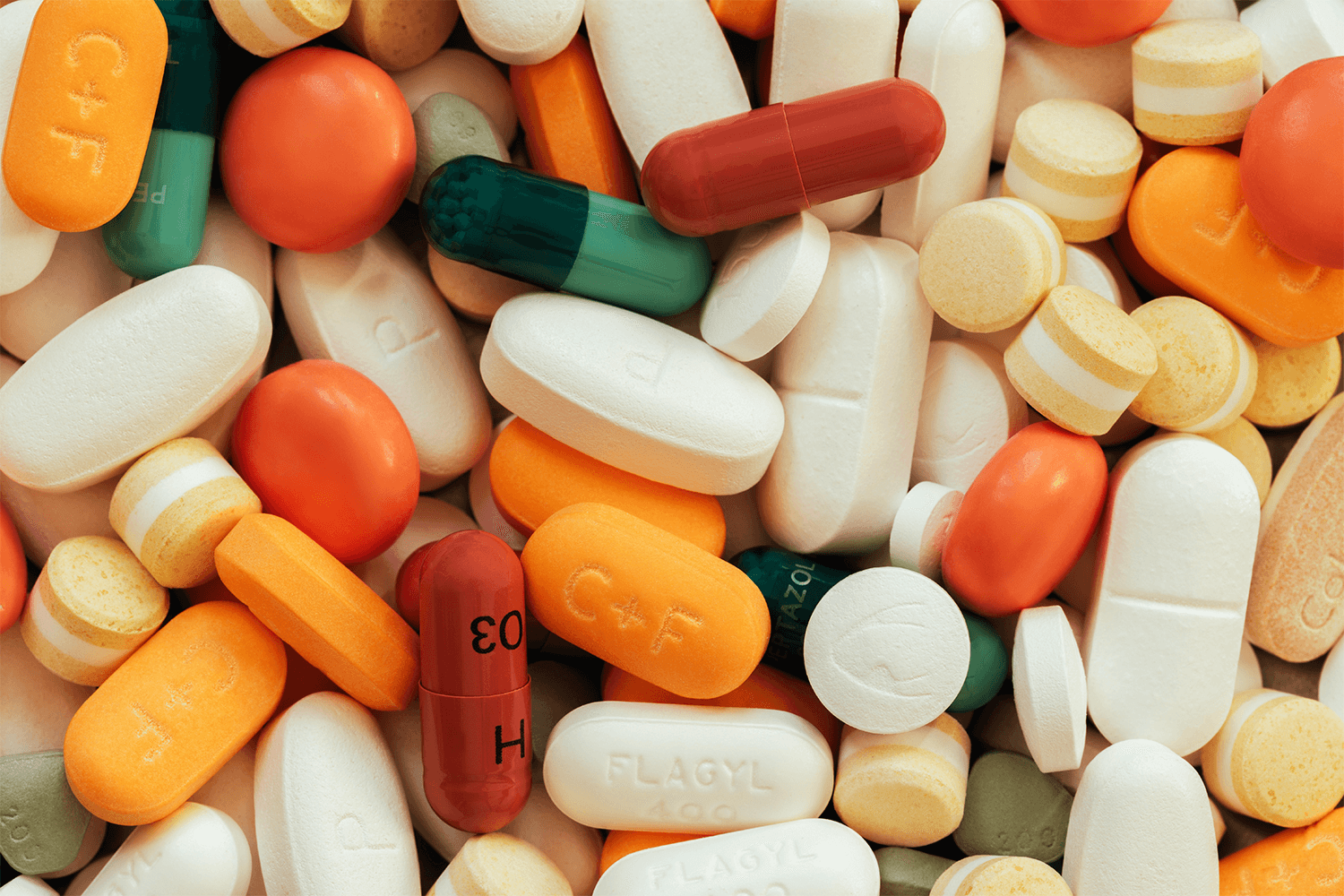Written by Ashley Kane,
Brightside Health
7 Minute Read

Medically reviewed by:
Jen Miller, PMHNP-BC
PMHNP Director
10 Minute Read

Before we get started talking about over-the-counter medicine for anxiety and stress, there are a few vital things that we need to note. First of all, no anxiety remedy is as effective as professional mental health care. Therapy and psychiatry are the most effective ways to manage anxiety or other mental health conditions. In fact, therapy and psychiatry treatment in combination can lead to better results.
Furthermore, because anxiety medications need oversight by a medical provider, they are only available through prescription.
That said, there are some over-the-counter (OTC) remedies and supplements that may be linked to reduced feelings of anxiety and its accompanying symptoms. Learning more about these options may open new doors for you when it comes to coping with your symptoms.
Vitamins or supplements are widely available in many different shapes and sizes, and it can be overwhelming to assess all of the options by yourself, especially if you are not entirely sure where to start.
This is your complete guide to over-the-counter anxiety medication options and the top seven choices that may bring you results. Just remember that the best anxiety medications will be prescribed by a psychiatric provider.
Want to speak 1:1 with a therapist or psychiatric provider about your anxiety & depression? Start with a free assessment.
Want to speak 1:1 with an expert about your anxiety & depression?
7 vitamins and supplements for anxiety
Over-the-counter anxiety treatment options aren’t often the first recommended option as treatment options like prescription medications and therapy are usually the most effective; however, these OTC options can work to supplement these two main treatment methods as examples of complementary and alternative medicines.
Some OTC vitamins and supplements may be effective at reducing symptoms of anxiety, but it is always important to consult your provider before you start taking a new vitamin or supplement, especially if you are taking any other medications.
While more research is needed to establish how effective supplements really can be, if you use them properly, they generally are not harmful.
1. Magnesium
Magnesium is a very important vitamin that can be found in leafy green vegetables, legumes, nuts, seeds, and whole grains. Aside from supporting your regular cell function, magnesium may also support your moods and emotions, and inadequate magnesium has been linked to anxiety and other health problems.
Studies have found that magnesium can be a great remedy for mild feelings of anxiety, and may be particularly helpful for people dealing with anxiety as a symptom of premenstrual syndrome.
2. Omega-3
Omega-3 fatty acids are great for your health for many reasons, and they are naturally occurring in fish and certain plant sources like nuts and seeds.
Omega-3 fatty acids have been found to be helpful when it comes to the management of medical conditions and mental illnesses, and they can specifically help reduce inflammation and anxiety among young adults.
3. L-theanine
L-theanine is one of several amino acids, and this amino acid has commonly been promoted on account of its potential calming effects. L-theanine is frequently found in teas.
Research has shown that L-theanine may be highly effective at promoting relaxation without causing drowsiness, making it a great way to combat anxiety without becoming tired. More research is needed, but L-theanine may also be linked to reduced symptoms of stress.
4. Lavender
Taking lavender orally, or using lavender for aromatherapy, may also be very effective at reducing feelings of anxiety. Lavender has been used in medicinal remedies for centuries and is well-known for its fragrance and color.
Several trials have shown that lavender can be a great way to reduce minor symptoms of anxiety, and it may help with insomnia, too.
5. Ashwagandha
Ashwagandha is an ancient remedy that can be derived from a shrub plant that is native to India and North Africa, and it has been studied extensively.
Ashwagandha has been widely recognized for its ability to lower cortisol levels, which in turn reduces stress and anxiety since cortisol is known as the stress hormone.
6. Chamomile
Chamomile is a flowering plant, and it is very commonly found in teas. Chamomile essential oil, which is extracted from the plant itself, has also long been used for its anti-inflammatory and calming properties.
Chamomile can help reduce the effects of anxiety, but generally, its impact is only modest, and more research is needed.
7. Valerian
Valerian, like chamomile, is also a flowering plant that is widely used as an herbal supplement and can be very effective at treating insomnia. Studies have shown mixed results regarding its effectiveness when it comes to treating anxiety, but if you have insomnia-related anxiety, this herb may be largely beneficial for you.
Some studies have suggested that valerian does reduce anxiety and stress, while other studies have reported no changes at all, so more research is needed to confirm the effectiveness of this remedy.
Traditional treatment methods
While OTC options may be helpful if you are just starting to deal with your anxiety, they may not always be the most effective option for some people. Here are some more traditional methods of treatment, like prescription anxiety medication and therapy.
Antidepressants such as SSRIs (selective
